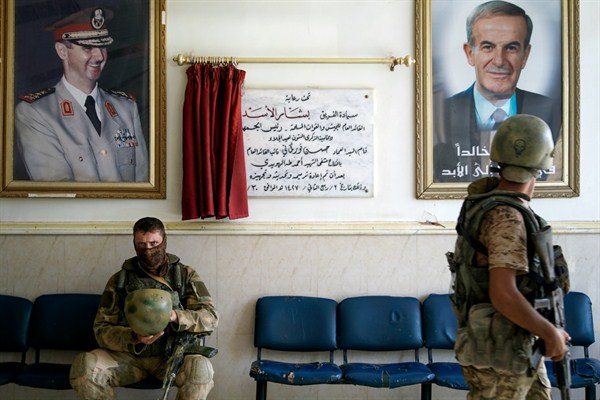Editor’s note: This article is part of an ongoing series on the Islamic State after the fall of Raqqa and the outlook for Syria and its neighbors.
In Syria, the self-proclaimed Islamic State, or ISIS, was always treated as a problem with an essentially military solution. At least for the U.S.-led international coalition, there was no positive end state or program of political change that could be joined to the military campaign against the jihadi group. The general repulsiveness of the Syrian regime of Bashar al-Assad meant that, unlike in neighboring Iraq, Washington and its allies could not simply invest in the Syrian state. And none of Syria’s nonstate armed factions represented a plausible governing alternative, at least not for more than a piece of the country. The result was a counter-ISIS military campaign absent a coherent, viable political vision for a post-ISIS Syria.
Now that post-ISIS Syria has arrived, and the West still has no satisfactory answer for what a good, stabilizing post-ISIS political order in Syria should actually look like. So Syria will be defined not by what should be, but what is: a political map that has been redrawn by the fight against the Islamic State.

